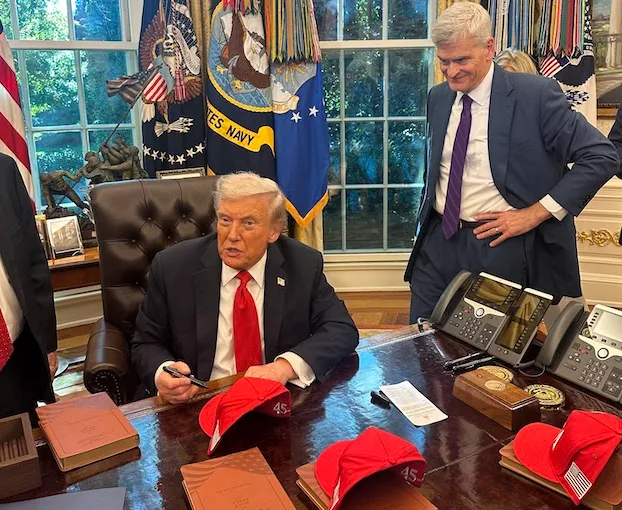Copyright American Press

U.S. Sen. Bill Cassidy, R-La., discussed a piece of legislation he spearheaded that was recently passed by the U.S. Senate during a phone news conference on Wednesday. The Internal Revenue Service Math and Taxpayer Health (IRS MATH) Act was written to improve math error notices that Americans receive when they file tax returns with minor math or clerical errors. The legislation, which now awaits President Donald Trump’s signature, aims to reform how the IRS communicates math error notices — which are automated corrections to tax returns. “It can be tough dealing with the IRS,” he said during the conference. “Even if you’ve made an honest mistake filing your taxes. But if it’s an honest mistake, it should be an easy fix.” Under current law, the IRS can adjust returns for simple math or clerical errors without prior notice, giving taxpayers only 60 days to respond before forfeiting their right to challenge the changes. Cassidy said millions of Americans receive such notices annually, but many find them vague, listing multiple possible errors without specifying the exact issue or how to contest it. This lack of clarity can lead to further mistakes and financial setbacks, especially for those unable to afford legal assistance. Cassidy emphasized the importance of transparency, stating, “Americans should have every opportunity to keep their hard-earned income.” The IRS MATH Act seeks to overhaul this system by mandating clearer communication. Notices must now identify the specific line item being changed, explain the reason for the adjustment, and clearly state the deadline for taxpayer response The bill also requires the IRS to notify taxpayers of abatement decisions and directs the Treasury Secretary to establish more accessible procedures for requesting abatements, including options for phone or in-person appeals. Additionally, a pilot program will explore the benefits of sending notices via certified or registered mail. The legislation was co-sponsored by Senator Elizabeth Warren, D-Mass., and introduced in the House by Reps. Brad Schneider, D-Ill., and Randy Feenstra, R-Iowa.



